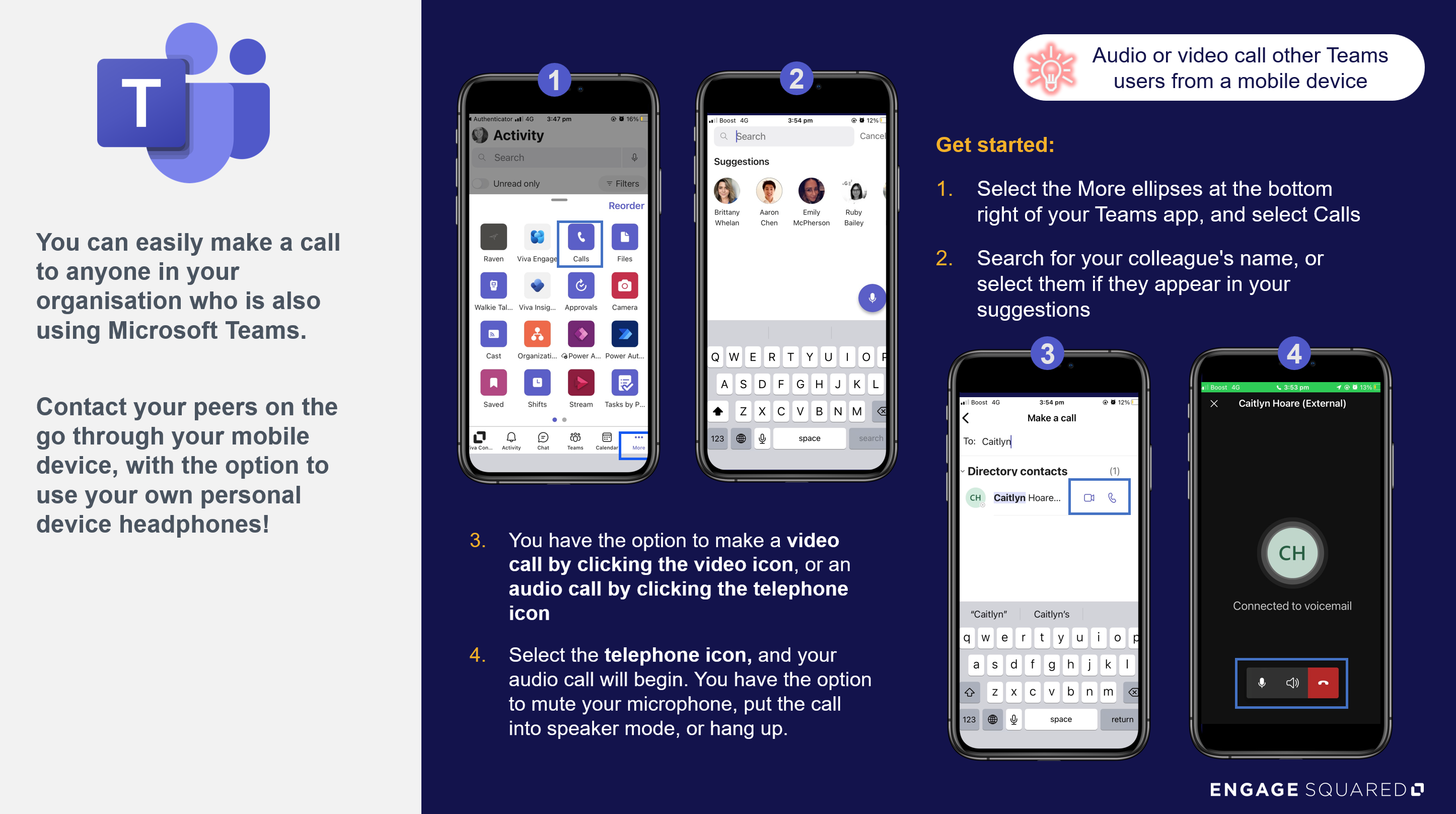
Our client is one of Melbourne’s largest metropolitan health services, providing a range of emergency, surgical, medical, and general healthcare services to diverse communities across Victoria.
Client
Withheld
Industry
Healthcare
Organisation Size
11,000
Country
Australia
Technologies
M365
Service
M365 change management
Context
After helping our client to develop their Microsoft 365 (M365) training strategy, our Transformation & Change practice were excited to provide ongoing managed support through our ‘Change as a Service (CaaS)’ offering.
This service included hands-on training, development of communications materials, plus adoption & change management initiatives. We also helped to create awareness, unpack the implementation impacts, and build capability and knowledge of M365 – reaching not only those in corporate roles, but the frontline workforce too.
Over just four months, our experts were able to use their knowledge in SharePoint for document management, Teams, OneDrive, and Outlook, to enable our client to fully implement M365 tools into their digital landscape.
The challenge
When CaaS was initiated, our client was already armed with a foundational plan to implement M365 into their organisation and were eager to hit the ground running to embrace the benefits of Microsoft’s suite of tools. Their excitement was carried through from a previous Engage Squared engagement, when we successfully deployed a Microsoft Teams Adoption Hub, Learning Pathways, and a Teams ChatBot called MO.
As part of this previous engagement, we had conducted an impact assessment and formulated a comprehensive change training strategy for their broader M365 implementation. However, through the development of this strategy, we soon uncovered that addressing the people side of change was the missing piece of the puzzle for their 11,000 workforce to truly adopt M365.
The move to new ways of working was complicated by impending differences in the user experience. The frontline clinical worker was to be equipped with M365 Frontline F3 licenses, whilst the corporate worker was equipped with a M365 Enterprise E5 license. This licensing decision made sense, understanding that clinical workers were predominantly using shared or mobile devices, so we needed to take this group on a journey to understand what this meant for them, which included changes in outlook mailbox sizes, in application access, in desktop application accessibility, and more.
Unravelling the digital requirements of our client’s workforce posed significant challenges. The stark contrasts in work styles, daily priorities, information preferences, and licensing made it a complex task. We saw that even a straightforward need like having a chat service for swift communication among colleagues was increasing security concerns. Employees were resorting to using non-compliant tools outside the Microsoft ecosystem as temporary solutions, further exacerbating the risks to data security.
Through the CaaS engagement, our team was challenged to identify, prioritise and deliver change support initiatives that targeted the varying interactive learner, to build custom reference material that the whole organisation could connect with, and help identify and mitigate impacts through key messaging used within communications and information forums such as the M365 working group.
The team wanted to ensure they were introducing new, accessible, and secure tools for all employees to easily achieve their required tasks, whilst also working to improve digital literacy across the organisation.
Our approach
At kick-off, the full extent of the M365 technical implementation impacts were still unknown. Our change management approach needed to be flexible to accommodate shifting priorities and requests as the implementation plan evolved. The client team was still in the process of understanding their existing landscape and organisational capabilities, which served as essential guidance for driving change initiatives.
We collaborated closely with our client’s M365 project team, offering change advisory support to identify tasks that could be undertaken by our team as part of our CaaS offering. This approach allowed change management initiatives to evolve and be re-prioritised throughout the project journey, enabled by continuous consultation within their team. The collaborative efforts allowed us to seamlessly integrate, not only into the M365 project team, but the wider organisation.
To kickstart the initial activities, we used the M365 technical roadmap as a foundation for our activity prioritisation. Leveraging our expertise in training, communications, engagement, and change impact analysis, combined with our in-depth knowledge of M365, we were able to identify crucial activities for ensuring successful adoption and sustained use of Microsoft tools.
The solution
To completely embed ourselves with our client, we participated in three weekly inter-organisational stand-up sessions to check in on priorities, to ensure that questions were raised, and to validate our approach and outputs. In addition to this, we produced a monthly report to help create visibility for their team, or the time being invested from the CaaS funding.
We utilised a range of tools to help us ensure that we were enabled to implement activities, such as Microsoft Planner for task tracking, Teams for collaboration and conversation, and Teams meetings for training session facilitation. All guides and resources produced were aligned to our client’s branding guidelines, and we worked with the project team to ensure these were accessible to all staff on the Intranet.
One of the core activities delivered, saw us urgently upskill the frontline workforce to use Teams for Chat and Calls, removing a reliance on non-compliant tools such as WhatsApp. Further work was also undertaken to help upskill a pilot group within our client’s IT department in the features, functionality and benefits introduced by using teams and channels for project and department collaboration within the organisation.

Through weekly stand-ups and prioritisation, we also recognised a need to focus on upskilling the organisation’s use of SharePoint and OneDrive for secure personal and peer collaboration, and information sharing. Our approach had to address the needs of those using web applications (typically frontline workers) and desktop applications (typically corporate workers). To ensure that we addressed the needs of the varying learner, we utilised an array of initiatives to upskill the workforce; both one-page guides and comprehensive guides, video animations and how to demos, and remote training sessions facilitated through Microsoft Teams.
In addition, our talented team of change management practitioners were also on hand to meet any of the urgent project needs of the team. These activities included the creation of “a-day-in-the-life” tool to help users connect to the M365 benefits, videos to help create introduce upcoming M365 tool launches, and equipping their project team with information and resources to facilitate decision making with change impact mitigation in mind.
The result
Our CaaS offering was able to demonstrate the value of targeted and planned change management efforts, helping our client understand what to consider when implementing future technical solutions for maximum adoption.
This engagement has allowed our client to have:
- A range of easy to digest learning collateral, accessible to all through their intranet
- An uplift in change capability for the M365 project team, now equipped with knowledge of what to consideration for the people side of any change
- An informed working group, who are prepared for the upcoming license changes which will uplift the frontline worker digital experience
The impact of this engagement includes:
- 400 employees attending a total of 14 training workshops
- Workshops recorded and accessible for future viewing
- 5 adoption resources created
- 7 videos totalling 20 minutes of content
Technology is nothing without the people that use it. We often witness customers implementing a technical solution, but employees aren’t aware, capable, or enabled to adopt or sustain tool use. We are delighted to work with a progressive and forward-thinking health service who understands the true benefits of change management.
